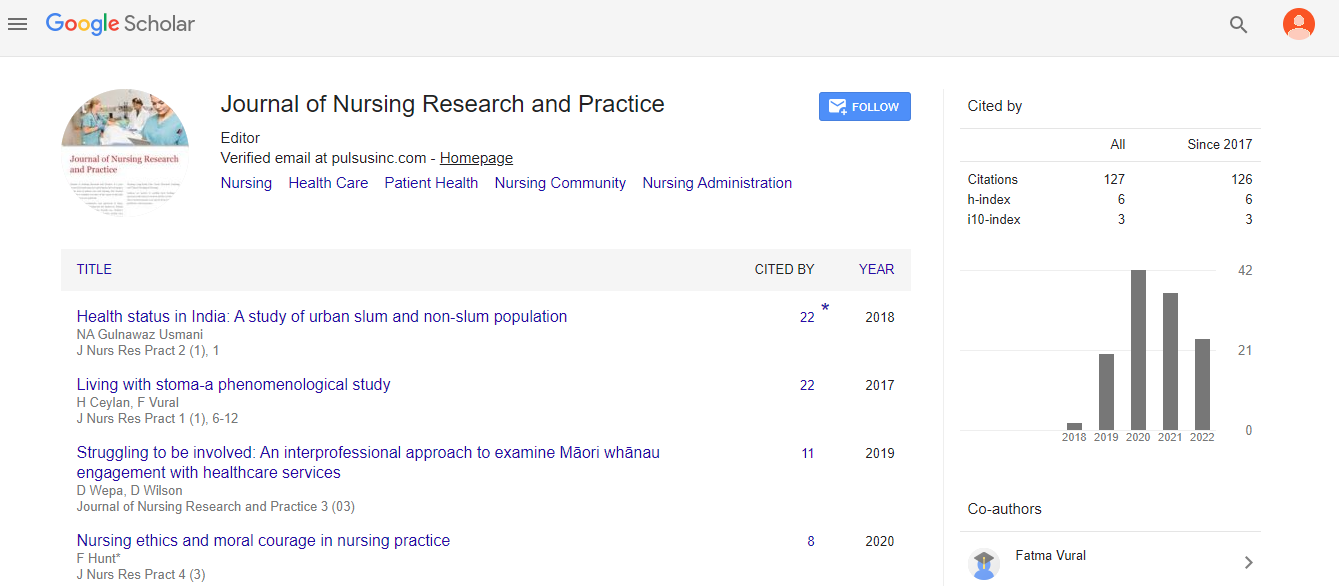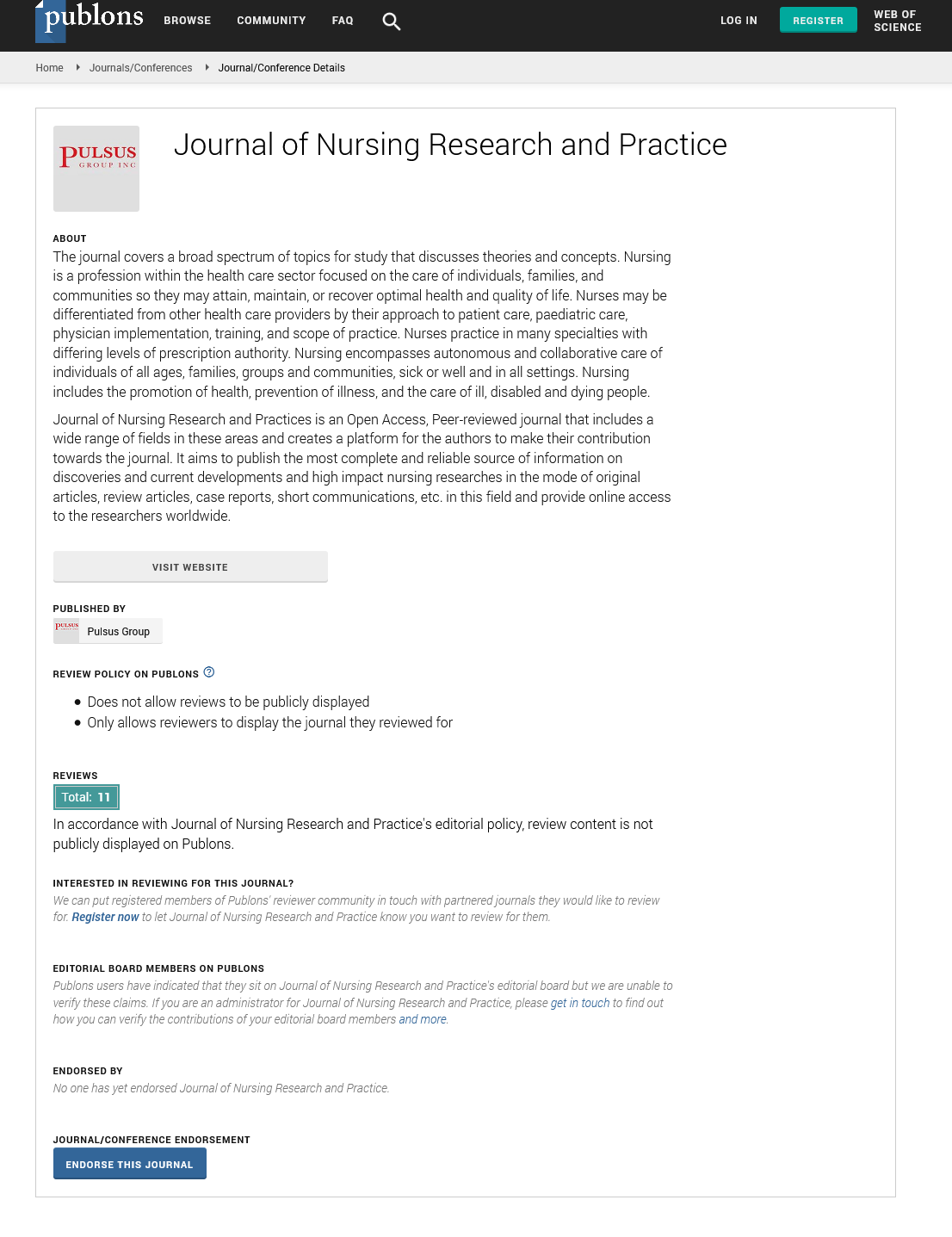progressed work on nursing an idea examination
Received: 11-Jan-2022 Accepted Date: Jan 12, 2022; Published: 23-Jan-2022, DOI: 10.37532/2632-251X.2022.6(1).34-34
Citation: Johnson H. Progressed work on nursing: An idea examination. J Nurs Res Pract. 2022;6(1): 01.
This open-access article is distributed under the terms of the Creative Commons Attribution Non-Commercial License (CC BY-NC) (http://creativecommons.org/licenses/by-nc/4.0/), which permits reuse, distribution and reproduction of the article, provided that the original work is properly cited and the reuse is restricted to noncommercial purposes. For commercial reuse, contact reprints@pulsus.com
Editorial
A variety of terms are used to describe advanced practice nursing roles internationally. This has resulted in confusion in terminology around these roles. This concept analysis aimed to clarify what is meant by advanced practice nursing internationally, what attributes signify advanced practice nursing, and what are its antecedents, consequences, references, and related terms. The analysis reveals that there are many different articulations of the advanced practice nursing role outlined in the literature. This variety in terminology hinders developments in advanced practice nursing roles. Consensus on advanced practice nursing definitions, terminology, educational requirements, and regulatory approaches is integral to the implementation of the advanced practice nursing role internationally.
There is continuing confusion in terminology surrounding advanced nursing roles. A survey of 18 countries conducted by the Nurse Practitioner/ Advanced Practice Nursing Network (INP/APNN) of the International Council of Nurses (ICN), identified 14 different titles designating advanced practice roles and noted great variety in educational and practice requirements. Moreover, the pursuit of cross-cultural comparison in advanced practice roles is considered questionable because of the difference in these roles internationally. This concept analysis is timely given the recent 2010 report by the Office of the Organization for Economic Co-operation and Development (OECD), which examined the state of development of Advanced Practice Nursing (APN) roles in 12 countries. This report illustrates that some various roles and contexts apply to APN internationally.
The literature retrieved was reviewed, and relevant attributes, antecedents, consequences, references, and surrogate terms for APN were identified. There is consensus that advanced practice is ‘beyond basic practice within the clinical domain’ and can be distinguished from basic practice through specialization, advancement, and expansion. However, subtle differences in the attributes of various advanced practice roles internationally are evident. For instance, in Ireland, a distinction between the core concepts of advanced practice and Clinical Nurse Specialist (CNS)/clinical midwife specialist is made. The five roles commonly associated with the CNS role internationally (i.e. educator, researcher, expert practitioner, consultant, and leader) are reflected in the four functions of the consultant nurse (i.e. expert practice, leadership and consultancy, education, training, and staff development and service development, research, and evaluation). Recent work also provides greater clarity through the identification of seven generic abilities of advanced nurse practitioners.
There are many different articulations of the APN role outlined in this analysis. Of all the advanced practice roles in nursing and midwifery, the role of CNS is the most unclear. This issue is also evident in the UK, where concerns regarding the proliferation of ‘site-specific’ cancer CNS roles are raised because they might result in a fragmented service to patients. However, a recent systematic review highlights that acute care CNSs can reduce hospital stay and the cost of care for hospitalized patients. Moreover, efforts to improve the quality and consistency of education for CNSs in the USA are evident with current developments for new proposed standards for the criteria for the evaluation of CNSs’ masters, practice doctorate, and post master’s certificate programs. In addition, the recent effort in the USA to curb the proliferation of multiple narrow sub-specializations in advanced practice roles is intended to more consistently regulate the advanced practice and assure public safety and provision of quality care.






